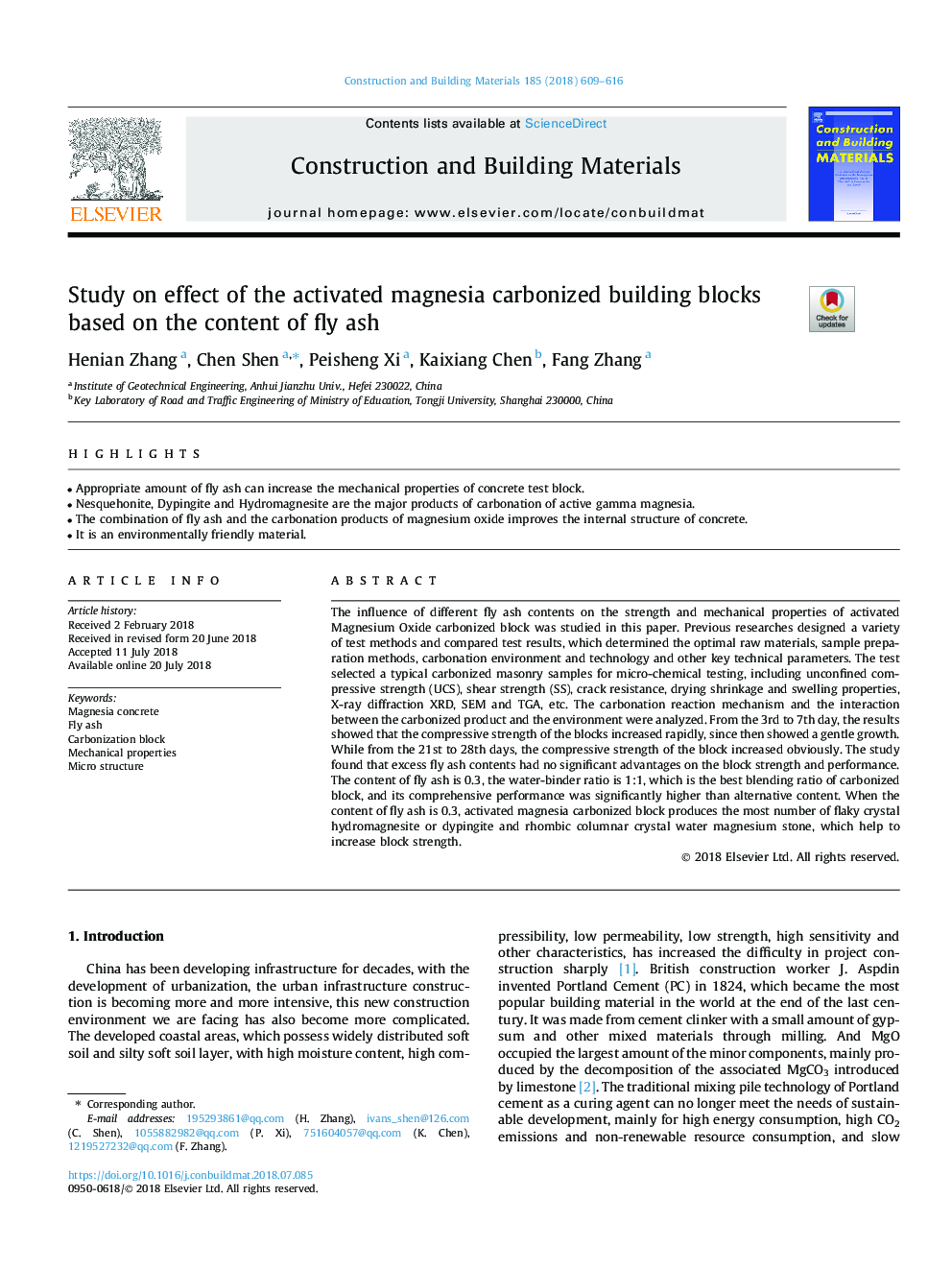| Article ID | Journal | Published Year | Pages | File Type |
|---|---|---|---|---|
| 6711949 | Construction and Building Materials | 2018 | 8 Pages |
Abstract
The influence of different fly ash contents on the strength and mechanical properties of activated Magnesium Oxide carbonized block was studied in this paper. Previous researches designed a variety of test methods and compared test results, which determined the optimal raw materials, sample preparation methods, carbonation environment and technology and other key technical parameters. The test selected a typical carbonized masonry samples for micro-chemical testing, including unconfined compressive strength (UCS), shear strength (SS), crack resistance, drying shrinkage and swelling properties, X-ray diffraction XRD, SEM and TGA, etc. The carbonation reaction mechanism and the interaction between the carbonized product and the environment were analyzed. From the 3rd to 7th day, the results showed that the compressive strength of the blocks increased rapidly, since then showed a gentle growth. While from the 21st to 28th days, the compressive strength of the block increased obviously. The study found that excess fly ash contents had no significant advantages on the block strength and performance. The content of fly ash is 0.3, the water-binder ratio is 1:1, which is the best blending ratio of carbonized block, and its comprehensive performance was significantly higher than alternative content. When the content of fly ash is 0.3, activated magnesia carbonized block produces the most number of flaky crystal hydromagnesite or dypingite and rhombic columnar crystal water magnesium stone, which help to increase block strength.
Related Topics
Physical Sciences and Engineering
Engineering
Civil and Structural Engineering
Authors
Henian Zhang, Chen Shen, Peisheng Xi, Kaixiang Chen, Fang Zhang,
